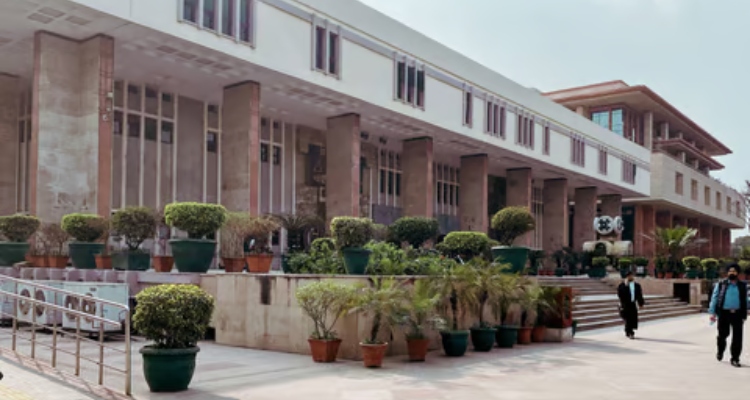
A Public Interest Litigation has been submitted to the Delhi High Court, delineating pressing concerns over the proliferation of unsolicited political campaign calls following the official notification of the Delhi state legislative assembly elections.
The petition asserts that these communications, initiated by diverse organizations and political entities, constitute an egregious violation of citizens’ Right to Privacy as enshrined in Article 21 of the Indian Constitution.
The bench, comprising Justice Devendra Kumar Upadhyay and Justice Tushar Rao Gedela, is scheduled to adjudicate the matter today.
The PIL contends that these intrusive calls serve as a conduit for the propagation of divisive rhetoric, misinformation, and partisan bias, thereby compromising the reputational integrity of political parties and obstructing the electorate’s capacity to make an independent and informed decision. The petition further articulates that these calls are strategically orchestrated to advance the interests of a specific political faction by proffering incentives in exchange for electoral support, while concurrently instilling apprehension regarding the withdrawal of such benefits should opposition candidates prevail. Such manipulative tactics, it argues, engender societal discord and subvert the democratic ethos by distorting voter perceptions.
Moreover, the plea asserts that the unauthorized dissemination of personal data for targeted political outreach represents a flagrant breach of privacy norms. “These entities are not only transgressing statutory frameworks but are also positioning themselves above the Constitution of India, thereby imperiling fundamental rights in pursuit of partisan objectives,” the petition maintains.
In seeking judicial redress, the PIL advocates for the promulgation of stringent regulatory guidelines to mitigate the circulation of malign and defamatory political messaging during electoral cycles. It urges the judiciary to mandate punitive measures, including financial penalties, the revocation of electoral symbols, and even the disqualification of candidates found culpable of engaging in such unscrupulous practices. Given the imminent elections, the petition underscores the exigency of these interventions to preserve electoral integrity.
Additionally, the PIL petitions the Telecom Regulatory Authority of India (TRAI) to elucidate how such unauthorized communications persist despite existing regulatory mechanisms. It calls for an investigation into the regulatory lapses that have facilitated these violations and seeks stringent enforcement measures against Respondent No. 3 for failing to curtail the proliferation of political spam calls.
Furthermore, the plea demands immediate judicial directives against the Aam Aadmi Party (AAP) to halt the dissemination of vilificatory content that unduly prejudices the electorate and erodes the democratic framework.
As the Delhi High Court deliberates on the matter, the petition underscores the imperative for enhanced legal oversight and enforcement mechanisms to safeguard the electorate from invasive, misleading, and coercive campaign strategies, thereby ensuring that electoral processes remain transparent, equitable, and free from undue influence.




